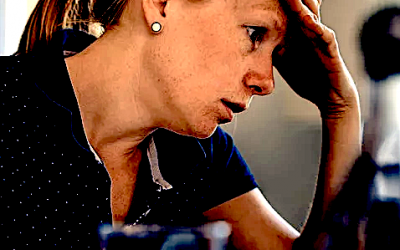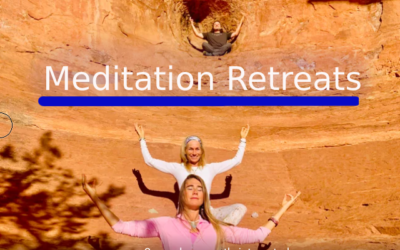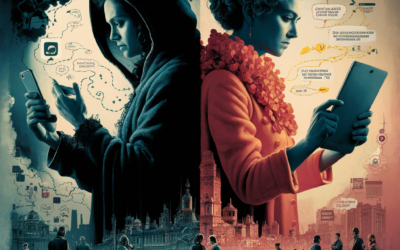Understanding TikTok's Appeal
What makes TikTok so appealing? The platform's success can be attributed to several factors:
1. Short-form content: TikTok videos are typically 15 to 60 seconds long, catering to shorter attention spans and providing quick entertainment.
2. User-friendly interface: The app is designed for easy navigation and content creation, making it accessible to users of all ages.
3. Powerful algorithm: TikTok's algorithm quickly learns user preferences, delivering a highly personalized feed of content.
4. Diverse content: From dance challenges to educational videos, TikTok offers a wide range of content to suit various interests.
5. Creative tools: The app provides numerous filters, effects, and editing tools, encouraging users to express their creativity.
These features have contributed to TikTok's rapid growth and its ability to capture and hold users' attention for extended periods. However, this level of engagement also raises questions about its potential impact on mental health.
Negative Impacts of TikTok on Mental Health
What are the potential negative effects on mental well-being?
1. Excessive Comparison and Low Self-Esteem
One of the most significant concerns surrounding TikTok is its potential to exacerbate feelings of inadequacy and low self-esteem. The platform is filled with carefully curated content showcasing seemingly perfect lives, bodies, and talents. This constant exposure to idealized versions of reality can lead to:
- Unrealistic expectations: Users may develop unrealistic standards for themselves based on what they see on the platform.
- Body image issues: The prevalence of "body checking" videos and beauty trends can contribute to negative body image and eating disorders.
- Social comparison: Constant comparison to others' achievements, lifestyles, or popularity can lead to feelings of inadequacy and depression.
2. Exacerbation of Existing Mental Health Issues
For individuals already struggling with mental health conditions, TikTok usage may worsen their symptoms:
- Anxiety: The pressure to create content, gain followers, or keep up with trends can increase anxiety levels.
- Depression: Excessive use of the app may lead to reduced real-world interactions, potentially exacerbating feelings of loneliness and depression.
- ADHD: The rapid-fire nature of TikTok content may be particularly challenging for individuals with attention deficit disorders, potentially worsening symptoms.
3. Exposure to Harmful Content
TikTok's algorithm is designed to keep users engaged by showing them content similar to what they've previously interacted with. This can lead to:
- Content rabbit holes: Users may find themselves exposed to increasingly extreme or harmful content related to mental health, dieting, or other sensitive topics.
- Normalization of unhealthy behaviors: Videos that romanticize or normalize depression, self-harm, or eating disorders may influence vulnerable users.
- Misinformation: Not all mental health content on TikTok is created by professionals, leading to the potential spread of inaccurate or harmful information.
4. Addictive Design and Sleep Disruption
TikTok's interface is engineered to be highly engaging, which can lead to problematic usage patterns:
- Excessive screen time: Users may find themselves spending hours scrolling through videos, potentially neglecting other important aspects of their lives.
- Sleep disruption: Late-night TikTok sessions can interfere with healthy sleep patterns, which are crucial for mental well-being.
- Dopamine addiction: The constant stream of novel content can create a dopamine-driven feedback loop, making it difficult for users to disengage from the app.
5. Cyberbullying and Online Harassment
Like many social media platforms, TikTok is not immune to issues of cyberbullying and online harassment:
- Negative comments: Users may face harsh criticism or bullying in the comments section of their videos.
- Trolling: Some individuals may intentionally create or share content designed to upset or provoke others.
- Privacy concerns: The public nature of TikTok content can lead to privacy issues, especially for younger users.
Positive Impacts of TikTok on Mental Health
Despite these concerns, TikTok can also have positive effects on mental health when used mindfully:
1. Community and Support
TikTok has the power to connect individuals with similar experiences, interests, or challenges:
- Supportive communities: Users can find and join communities centered around mental health, providing a sense of belonging and understanding.
- Reduced isolation: For individuals who may feel isolated in their real-world environments, TikTok can provide a sense of connection and companionship.
- Shared experiences: Seeing others openly discuss their mental health journeys can help users feel less alone in their struggles.
2. Mental Health Awareness and Education
The platform has become a significant channel for mental health education and awareness:
- Destigmatization: Open discussions about mental health on TikTok can help reduce stigma and encourage more people to seek help.
- Access to information: Mental health professionals and organizations use TikTok to share valuable information and resources.
- Diverse perspectives: Users can gain insights into a wide range of mental health experiences and coping strategies.
3. Self-Expression and Creativity
TikTok provides a unique outlet for self-expression, which can be beneficial for mental health:
- Creative outlet: The app's various features allow users to express themselves creatively, which can be therapeutic.
- Confidence building: Successfully creating and sharing content can boost self-esteem and confidence.
- Skill development: Learning new dance routines, editing techniques, or other skills through TikTok can provide a sense of accomplishment.
4. Humor and Stress Relief
Many users turn to TikTok for entertainment and stress relief:
- Laughter as medicine: Humorous content on TikTok can provide a much-needed mood boost and temporary escape from stress.
- Mindful breaks: Short TikTok sessions can serve as brief mental breaks throughout the day, potentially improving focus and reducing stress.
5. Validation and Normalization of Experiences
TikTok can help validate users' experiences and emotions:
- Shared struggles: Seeing others openly discuss their mental health challenges can help users feel validated in their own experiences.
- Normalization of help-seeking: Content that encourages seeking professional help can normalize the process of therapy and treatment.
Balancing TikTok Use for Better Mental Health
Given the complex relationship between TikTok and mental health, it's essential to approach its use mindfully:
1. Set time limits: Use built-in app features or third-party apps to limit daily TikTok usage.
2. Curate your feed: Actively engage with content that makes you feel good and use the "Not Interested" feature for content that negatively impacts your mood.
3. Be critical: Remember that much of what you see on TikTok is curated and may not reflect reality.
4. Create boundaries: Avoid using TikTok right before bed or first thing in the morning to maintain healthy sleep patterns.
5. Engage mindfully: If you choose to create content, focus on authentic self-expression rather than chasing trends or likes.
6. Seek professional help: If you find TikTok or any social media significantly impacting your mental health, don't hesitate to speak with a mental health professional.
7. Use privacy settings: Familiarize yourself with TikTok's privacy settings to control who can see and interact with your content.
8. Balance online and offline life: Ensure that TikTok use doesn't replace real-world interactions and activities.
Conclusion: Navigating the TikTok Landscape
TikTok, like many social media platforms, is a tool that can have both positive and negative impacts on mental health. Its ability to connect people, spread awareness, and provide entertainment is undeniable. However, the potential for addiction, comparison, and exposure to harmful content cannot be ignored.
The key to a healthy relationship with TikTok lies in mindful usage. By being aware of both the benefits and risks, setting appropriate boundaries, and using the platform intentionally, users can maximize the positive aspects while minimizing potential harm to their mental well-being.
As research into the effects of social media on mental health continues to evolve, it's crucial for users, parents, educators, and mental health professionals to stay informed and adapt their approaches accordingly. With conscious use and ongoing dialogue about its impacts, TikTok can be a valuable tool for entertainment, education, and connection in our increasingly digital world.
























